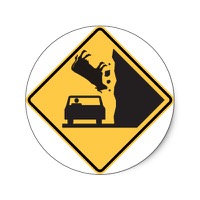Object-ivity

I sometimes suffer from a form of noun poisoning. I’ve bestowed a name, a good meme-y one, then strut around as if I’ve conquered it, though it wasn’t an ‘it’ until I objectified my sensory experience into that handy pocket size. I doubt that anyone could ever muster a completely proper characterization. I deal in impressionistic portraits, hardly photographic quality. You probably do, too.
Objectivity, Heintz Von Foerster once claimed, is the delusion that one could have an observation without also involving an observer. Objective reportage might be impossible. Facts vary depending upon perspective, context, a whole raft of things that don’t quite qualify as things. We have adopted a straightedge to draw pictures of inevitably curving lines. Usually, the result seems close enough. Sometimes, it just isn’t. Each one might be more a self-portrait, anyway.
When Picasso attempted to paint Gertrude Stein’s portrait, he painted over the face several times before taking a long trip back to Spain. When he returned, he completed the work in a single sitting, though Gertrude didn’t approve. “It looks nothing like me,” she insisted.
”Wait,” the artist replied, “It will.”
And it did. Now, that portrait hangs in the Metropolitan in New York, and is widely considered to be the definitive portrait of her.
Our little portraits of our experiences seem to work in the same way. We construct a story that at first might barely graze the experience, but, over time, that story becomes definitive, eventually subsuming the represented experience to in a way become the experience. Habit helps, I guess, and our burgeoning insistence upon efficiency. The shorthand version sells better than the unabridged one.
The BriefConsultant struggles to remember that nothing is as it’s represented, and this is no shortcoming unique to his kind of client. The story will subtly misrepresent, and must. Fortunately, stories might be the most fungible part of the engagement, and engagements are little more than stories. I don’t so much question the story as the storyteller. I’m interested how he came up with this representation. I will offer alternate interpretations, not because I’m particularly prescient, but because my perspective seems a little different from his. We triangulate into understanding, which might be just another way of saying we back into it, sometimes over it.
I risk little more than appearing to be an idiot when I ask, but I ask because without asking, without some focused conversation, I just don’t know; won’t know. The meanings which seem so obvious rarely stand up to even this minor cross examination, and the storyteller’s certainly softens a bit. I’m looking for possibilities, anyway, and freeing those frozen memes usually opens plenty of otherwise invisible opportunity.
If we can’t muster objectivity, we might just as well fiddle with the objects we so convincingly project on the cavern walls.
©2014 by David A. Schmaltz - all rights reserved


